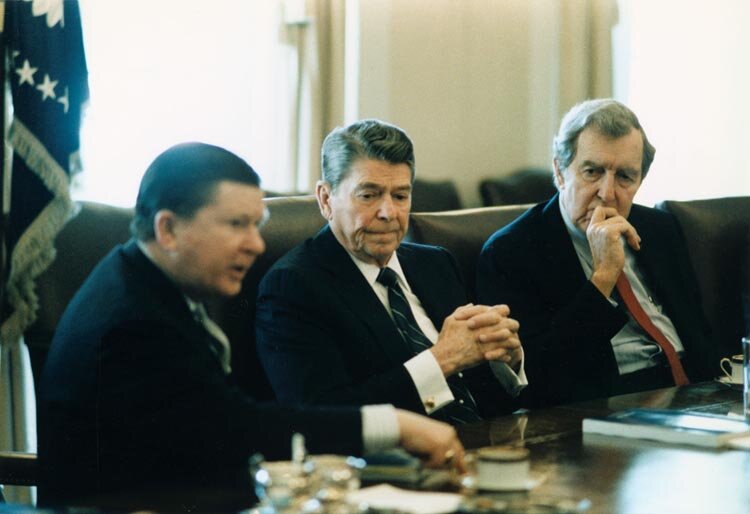In the musical “Hamilton,” Alexander Hamilton sings about writing his way out — of the tragic storm on his childhood home of Nevis, an act that would set him on a course for New York and destiny, and later out of scandal.
That’s the good thing about being a writer — maybe the bad thing, too — you can write your way out of almost anything but especially tumult as you try to make sense of the irrational.
This week, I was verbally attacked by two people.
Read more…
Read MoreWhat did Iran have to do with Nicaragua? Nothing except that the Reagan Administration used the sale of embargoed arms to Iran — yes the very Iran that we now hate — to fund the Contras in their opposition to the communist Nicaraguan government, all behind Congress’ back.
What does Saudi Arabia have to do with Ukraine? Nothing except that the Trump Administration is apparently sending troops to Saudi Arabia to distract from a whistleblower complaint that President Donald J. Trump allegedly withheld aid to Ukraine as he pressured the struggling democracy to investigate rival Joe Biden’s efforts to help son Hunter’s business dealings there. Needless to say, any administration efforts to cooperate with the inevitable congressional hearings won’t be happening.
Read more…
Read MoreIn 1975, James Clavell published “Shōgun,” a blockbuster novel about an English sailor caught up in 17th-century Japan’s feudal, xenophobic power struggles. The novel, which became a hit 1980 miniseries starring Richard Chamberlain, was frank about sex and even franker about violence. But the underlying theme was that of karma and the idea that “karma was always karma.”
We think of karma as fate or destiny. But that is only one aspect of the Eastern principle of cause and effect. What karma says is that what you sow, you shall reap, but not in the eye-for-an-eye way of ancient Judaism. Rather, karma is like physics. I send a pendulum away from me, it comes back with a force equal to that with which I sent it away. …
Read more
Read More“Something there is that doesn’t love a wall,” Robert Frost writes in “Mending Wall” – one of two Frost poems, the other being “The Tuft of Flowers,” that addresses the nature of human relationships. “That sends the frozen-ground-swell under it, and spills the upper boulders in the sun; and makes gaps even two can pass abreast.”
The poem ends with the neighbor telling the poet famously, “Good fences make good neighbors.”
Well, they certainly make resentful ones. This has been a week of walls, literal and metaphoric, courtesy of President Donald J. Trump. There is the actual, proposed wall between Mexico and the United States whose cost would be covered by a tariff on Mexican imports like avocados. (Oh, no, whither Cinco de Mayo?) To say that Mexico is not taking this well is the understatement of 10 lifetimes. El Presidente Enrique Peña Nieto – not exactly the most popular man south of the border – nonetheless got a boost at home after he cancelled his meeting with Trump, though the two have since spoken by phone. ...
Read more
Read More
